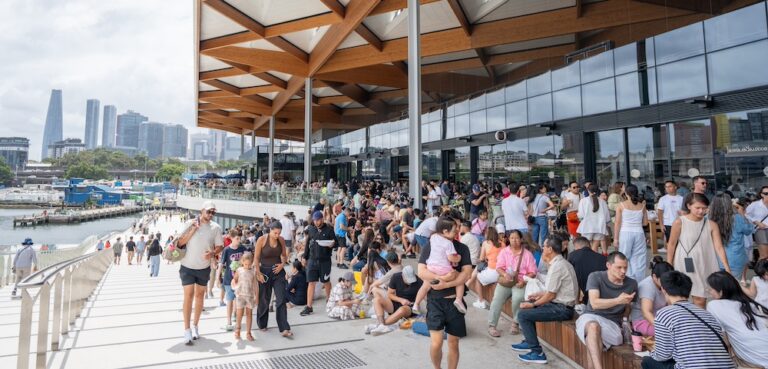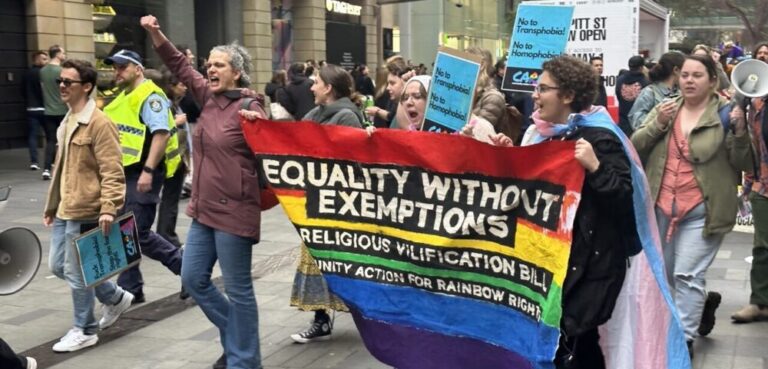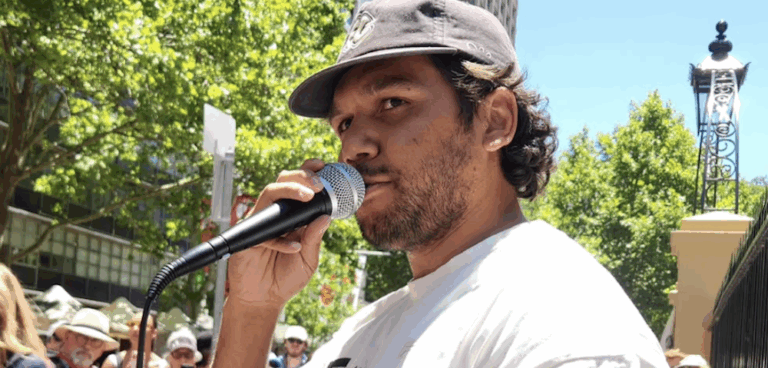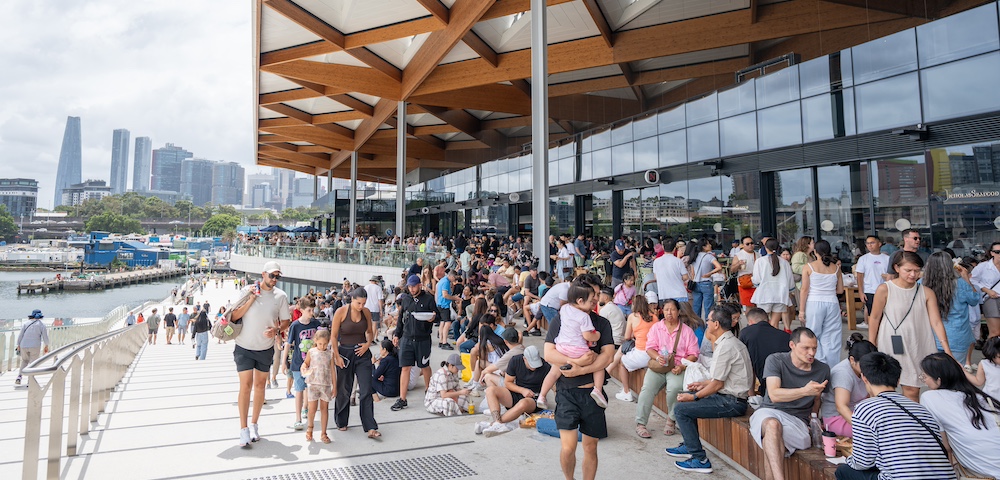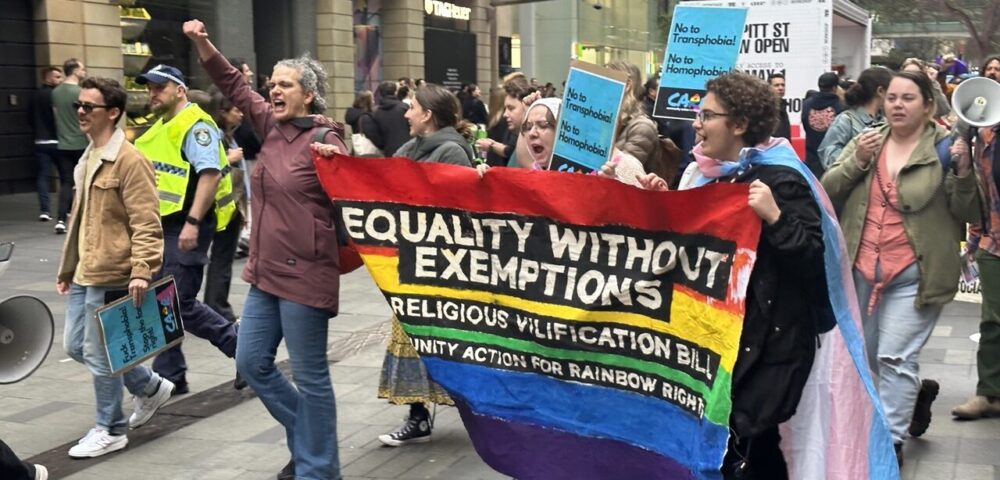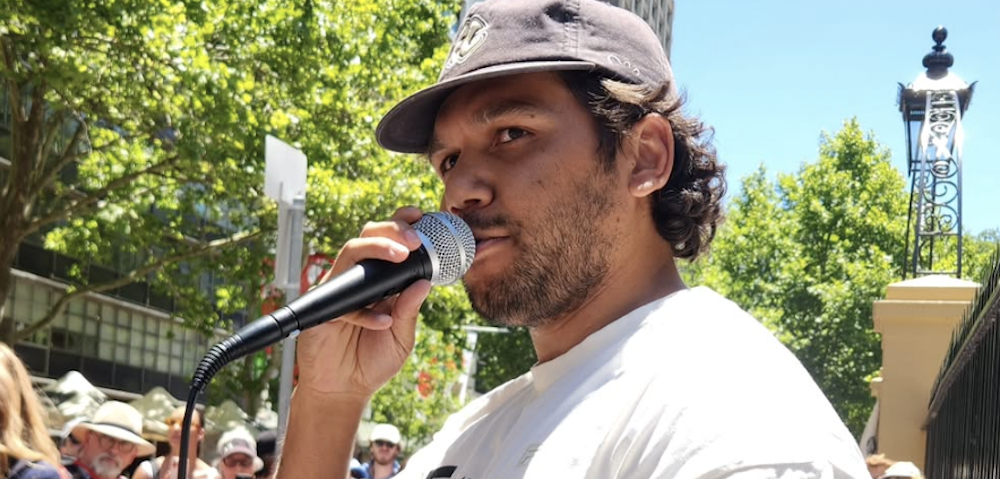
Boarding houses in Paddington under threat from developers, community groups fight back

by ASPEN ABNER
Boarding houses in Paddington are under threat of being demolished and converted into two luxury homes and stacked car parks. Paddington Society has been campaigning to protect the 30 residents at risk of eviction.
The City of Sydney has an estimated 294 registered boarding houses, totalling an estimated 4,031 rooms. Since 2013, 14 boarding houses have been approved to be converted to other types of houses.
Greens councillor Sylvie Ellsmore, who put forward a motion of support for boarding houses in the last City of Sydney meeting, spoke to City Hub about the implications.
“It is important to note that we have lost hundreds of boarding houses over the last ten years where there has been no development application at all,” she said. “There are massive holes in the planning system that allow this to happen.”
In 2023, the City of Sydney Council refused two applications to convert the boarding houses at 58-60 and 62-64 Selwyn Street Paddington. The Land and Environment Court is currently reviewing an appeal to this decision.
The boarding houses at Selwyn Street in Paddington currently provide 32 rooms.

“Immeasurable anxiety” caused by risk of eviction
Convenor Will Mrongovius of the Paddington-Darlinghurst Community Group told City Hub that if the DA appeal between the Land and Environment Court between the Applicant and city of Sydney Council is successful, these 30 residents will be made homeless.
“They have been living with the potential of being made homeless since 2023. The anxiety that this has caused them is immeasurable,” Mrongovius said.
“They have been given no information about the future since that time. They have been deliberately kept in the dark.”
Traditional boarding houses tend to be older buildings, featuring small rooms and shared facilities. The majority of boarding house tenants are older, on very low incomes and/or are living with a disability. There are few, and sometimes no, other options for these tenants if evicted.
For those evicted, it is the responsibility of landowners to find alternative accommodation for tenants if a boarding house is shut down. This is unlikely in the current housing market.
There is currently a 3-to-4-year waitlist for priority tenants for public and community housing, including a 20+ year waitlist for other applicants for public and social housing in the inner city.
It is reported that only 0.76 per cent of the total housing stock in the City of Sydney is formally protected affordable housing.
Traditional boarding houses are not considered ‘affordable housing’ since there are no legal requirements for rent price control. Rent prices in Sydney are at record highs, rising 13 percent in one year alone. Yet boarding houses are not exempt from rent hikes.
This is another threat for traditional boarding house tenants who are at risk of being evicted as a result of unaffordable rent increases.
Calls for City of Sydney to protect boarding houses
Paddington Society calls for the Council to protect the Selwyn Street boarding houses. This association also calls for an immediate moratorium on rent increases for boarding houses.
The association has so far lodged 30 objections, calling for the purchase of these boarding houses to retain low-cost and affordable housing to protect current residents, consulting lawyers and engaging with the media. Despite this, local residents say that protections under planning rules will not be enough in the long run.
This is because there are no protections against ground evictions or unreasonable rent increases.
“Tenants remain at risk of eviction at the whim of the landlord or through putting the rent up so much it effectively forces out the current tenants,” Clr Ellsmore explained.
The Paddington Society wrote to Council to suggest some of the affordable housing funding could be put towards purchasing boarding houses at risk, but the Lord Mayor’s team has rejected this.
Asking Clr Ellsmore why it was rejected, she said that to protect the remaining boarding houses, it needs the Council, government and non-profit groups to step in.
“It is disappointing that the majority of the council did not support these calls. Council could choose right now to provide practical support for boarding house tenants. Every month we wait for reform risk tenants being evicted.”
